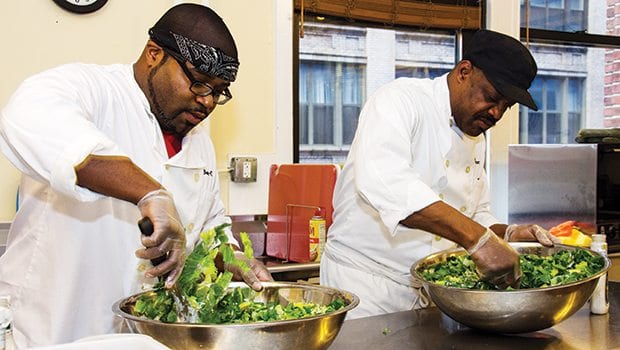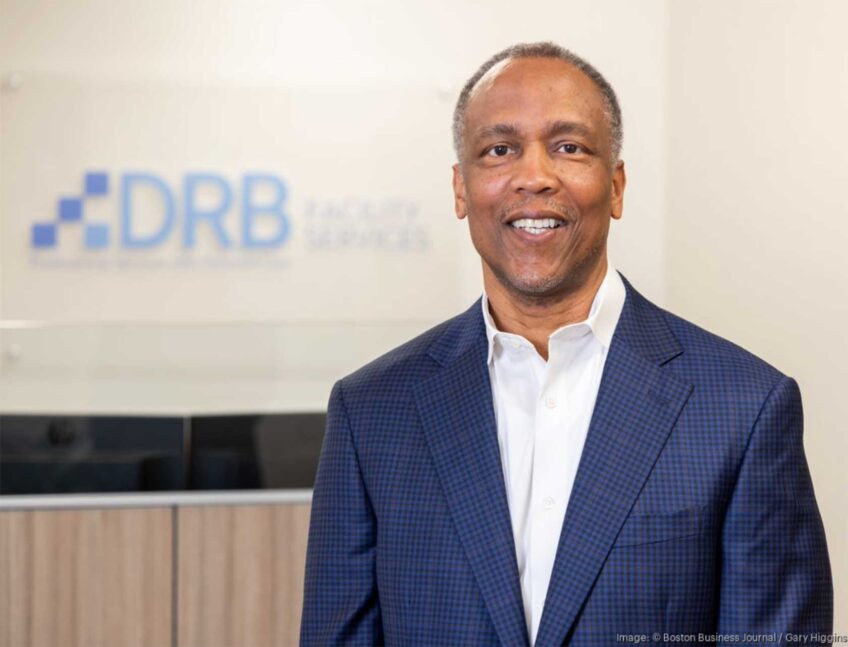Developing a workforce
Grant provides training funds for hotels, construction

A recent $3 million grant from the federal government will allow Boston to double the amount of women and people of color it helps train for jobs in the construction and hospitality industries, to about 400 over the next five years.
City officials view the cash as a major boost that will support a number of apprenticeship programs that train construction trades professionals — carpenters, electricians, sheet metal technicians, pipe fitters and iron workers. But it also is significant in that it will add hotel work to the umbrella of industries Boston is trying to diversify and strengthen.
With the Massachusetts Executive Office of Labor and Workforce Development and the Bureau of Labor Statistics suggesting that construction jobs will grow by 30 percent in Boston in the next decade, and hospitality sector jobs increasing by 20 percent during the same period, now is the perfect time to ramp up efforts to open more doors for more people into such careers.
It is also no surprise that Boston continues to staunchly support the construction trades — Mayor Martin Walsh has a background in the trades and started some of the initial training programs that support the different sectors — but the city is not exactly on its own in the efforts to build a stronger pipeline of employees.
The numerous local trades unions are pumping millions into apprenticeship training and programs such as Building Pathways and YouthBuild Boston, as well as BEST Corp.’s Hospitality Training Center in Boston, are already successful in their own right.
What the infusion of government money does, however, is link all these efforts together in the creation of Greater Boston Apprenticeship Initiative.
Good-paying jobs
The overall goal of the initiative is to train people of color, women and underrepresented groups and put them on the path to skilled work, opening the door beyond minimum wage jobs to initial union wages of about $16 per hour or journeyman wages of $21 per hour and higher.
According to Trinh Nguyen, director of the Mayor’s Office of Workforce Development, another key upgrade the initiative brings is connecting the various training programs with colleges for credit. Wentworth Institute of Technology and Bunker Hill Community College are already on board.
Nguyen points out that participants can be trained for jobs, earn college credit and also make good wages as they start apprenticeship work — all at the same time. She views the initiative as another alternative to the traditional college career path.
The apprenticeship initiative even plans a scholarship fund that will help participants pay for college degrees that can be built on credits earned during the training programs.

Author: Photo courtesy of BEST Corp.Students gain housekeeping skills at Hospitality Training Center in Boston.
All told, about $16 million will go into the training efforts over the next 5 years, with the unions providing the most cash, about $13 million. Boston will pump in about three-quarters of a million dollars, with other partners such as BEST Corp. funding efforts as well.
While most of the union money supports the actual training and facilities for the different sectors, the $3 million in federal money will be used to get more people into training and also to firmly establish the infrastructure as the best way to continue such programs into the future. The city wants to show that it works and then keep the financial support flowing for years to come.
“We needed this to start the engine,” Nguyen said. “The hope is it gets people to say, “Wow, this really works. It looks good. There is a system in place.’”
As Boston has added support for hospitality training to its established efforts to support the construction trades, more industries can be addressed.
“We are adding other industries. Construction, hotels and hospitality is just a start and we want to expand that,” Nguyen said.
Building Pathways, which was started in 2011, trains about 30-40 people a year now. Nguyen estimates this number will jump to about 70-80 a year thanks to the government funding.
BEST Corp., which prepares workers for a variety of jobs in the hotel business through its Hospitality Training Center, will start its work with the Greater Boston Apprenticeship Initiative with a housekeeping training program. The estimate is that at least 100 people will go through the program during the city’s push over the next five years.
Marie Downey, executive director of the Hospitality Training Center, said working with Boston was a tremendous opportunity for her organization to emphasize the benefits of a career in hospitality.
“Our partnership with the city it is another way of raising awareness,” said Downey. “It is really trying to shine a light on our industry.”
Overlooked opportunities
The Hospitality Training Center is leading the fight to discredit any public sentiment that entry levels jobs in the hotel industry are not important and not good career options. In fact, entry level positions — attainable without a college degree — can provide workers with wages of well into $30,000 a year.
According to Downey, starting with a housekeeping training program is important because this entry level job is a gateway to so many other jobs within hospitality and it is very common for workers to move up from such positions.
“Hospitality is an industry where customer service skills and the right attitude and being motivated are really more important than a college degree. There is almost any position in a hotel you can move into,” Downey said.
While Mayor Walsh and other politicians — senators Elizabeth Warren and Ed Markey, as well as representatives Stephen Lynch and Mike Capuano — have praised the Greater Boston Apprenticeship Initiative, Nguyen sees the real vote of confidence from the 65 different employers who have already stepped forward willing to hire workers that come out of the training programs.






